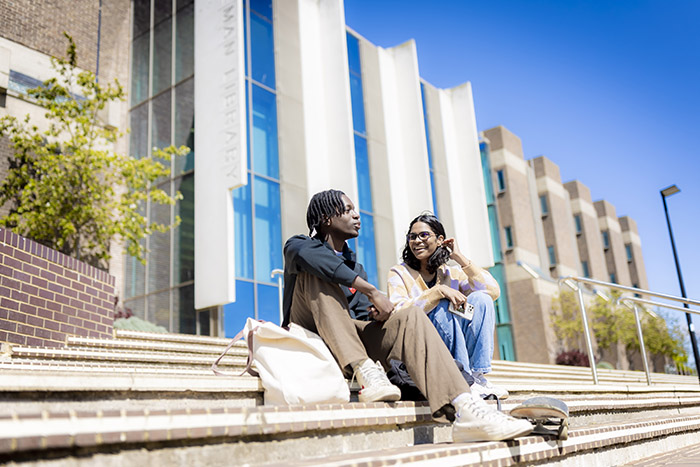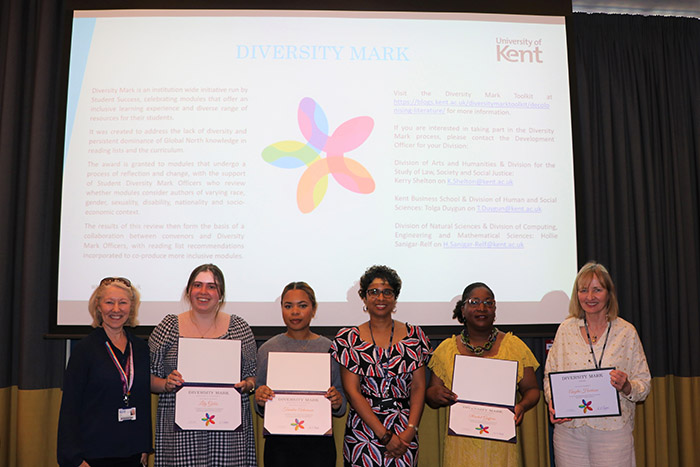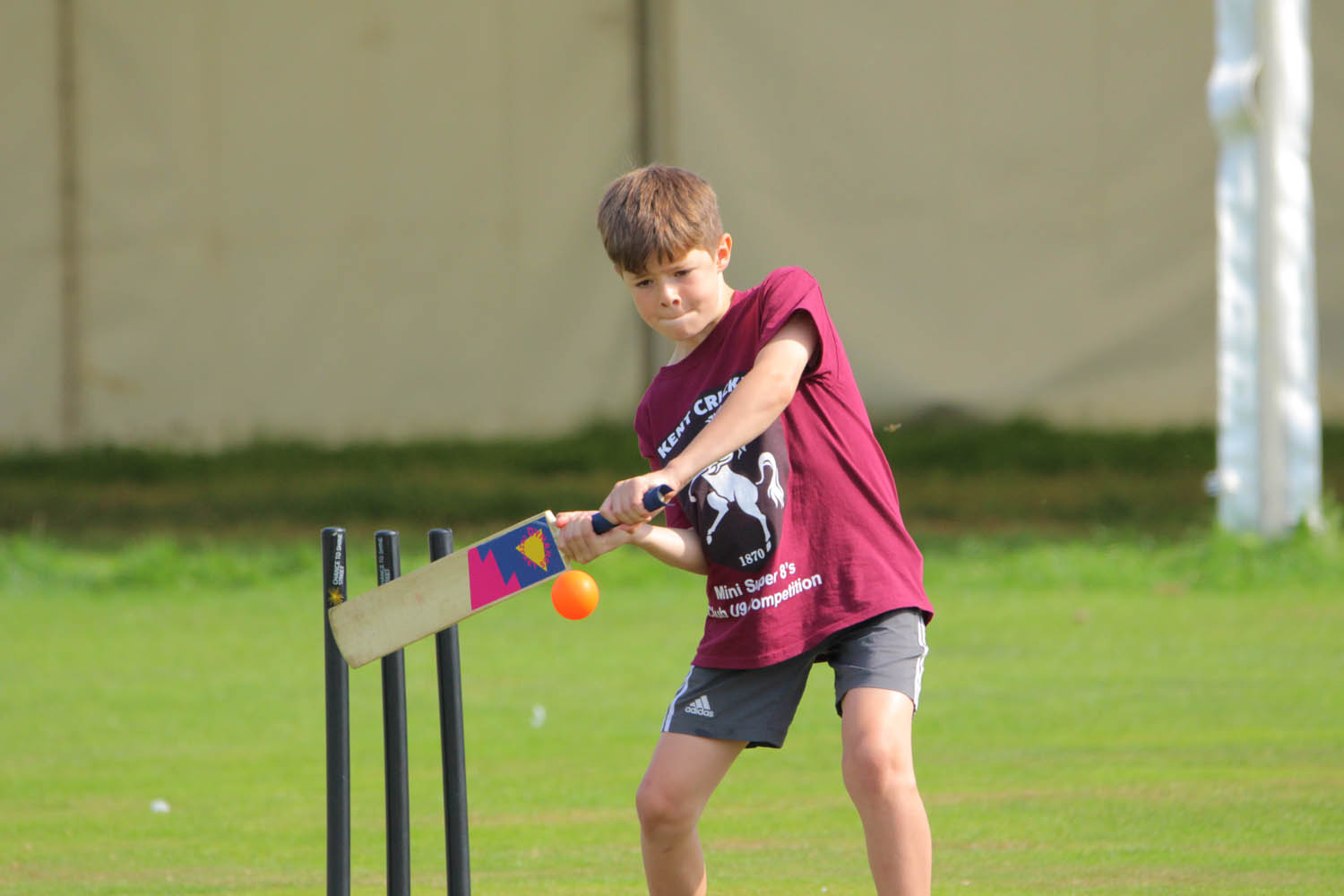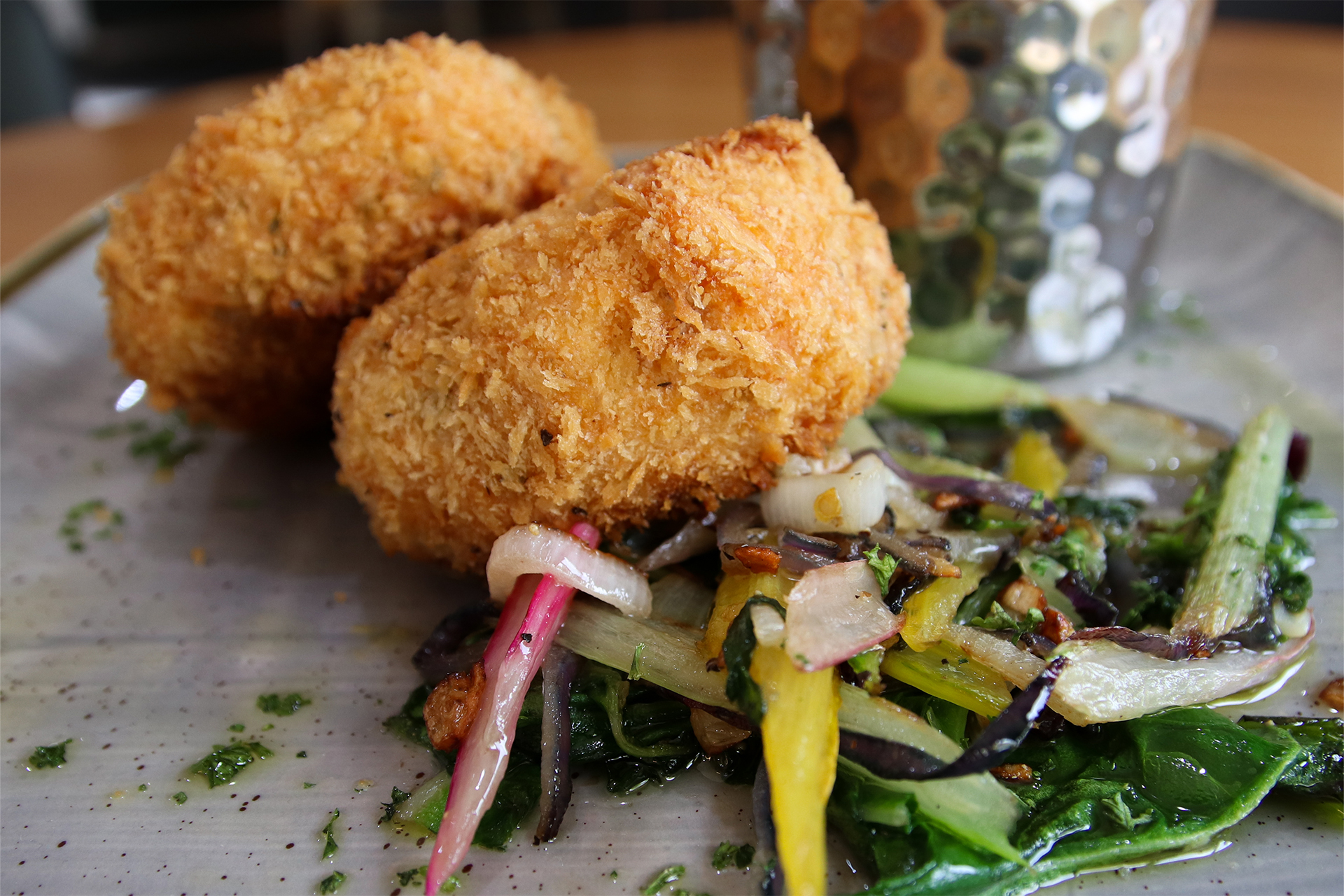In hopefully the first of many celebrations to come, the inaugural Diversity Mark Awards took place at this year’s Learning and Teaching Conference.
Diversity Mark is an institution wide initiative run by Student Success, celebrating modules that offer an inclusive learning experience and diverse range of resources for their students. It was created by Dr Barbara Adewumi to address the lack of diversity and persistent dominance of Global North knowledge in reading lists and the curriculum.
The Diversity Mark Award is granted to modules that undergo a process of reflection and change, with the support of Student Diversity Mark Officers who review whether modules consider authors of varying race, gender, sexuality, disability, nationality and socio-economic context.
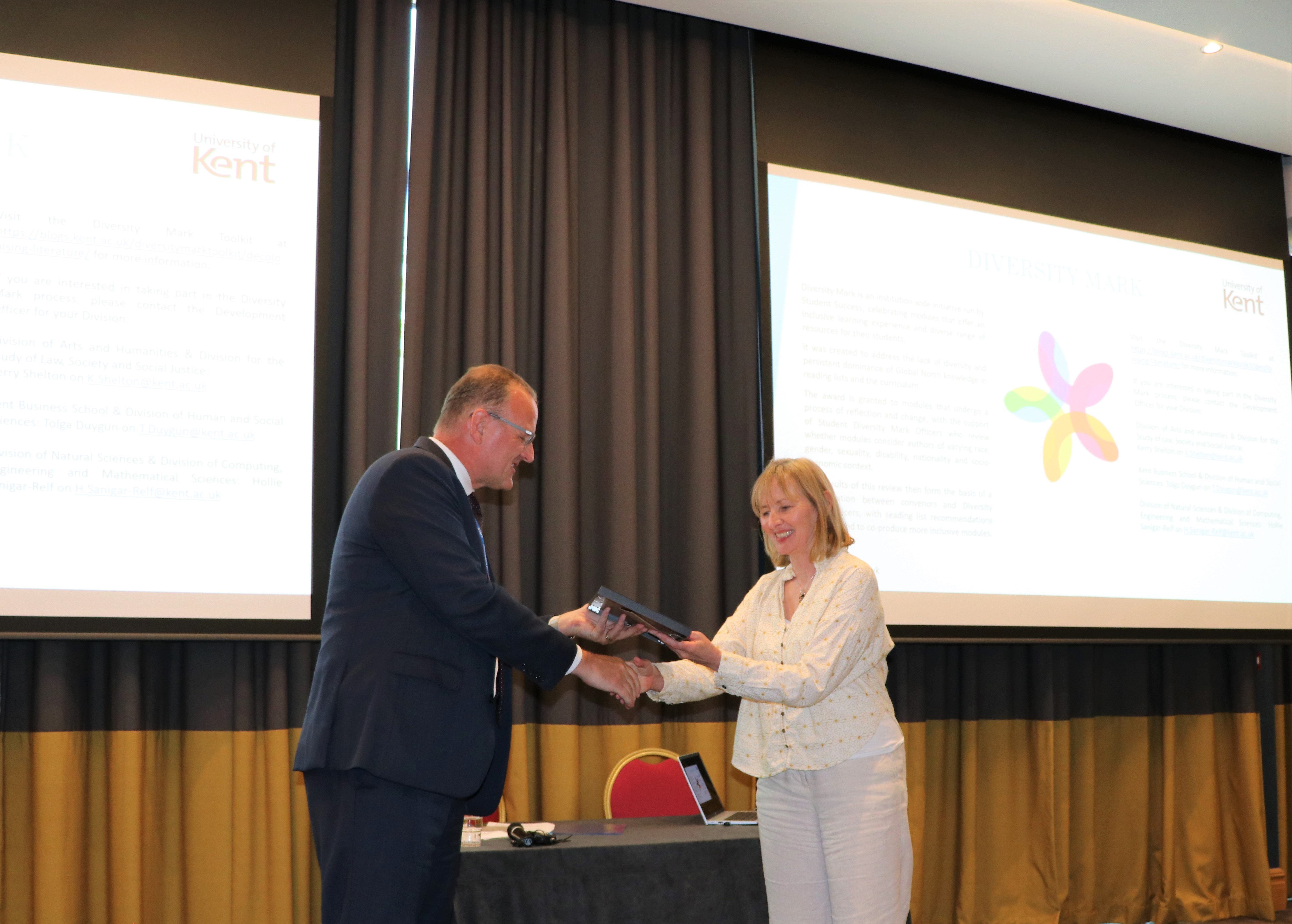
The first successful convenors to achieve Diversity Mark status were presented with Diversity Mark Awards by Professor Richard Reece, in recognition of their incredible achievement. These convenors were as follows:
Angela Harrison for her modules JOUR3010 ‘Reporting and Writing’, JOUR6070 ‘Specialist Journalism (UG)’ and JOUR8210 ‘Specialist Journalism (PG)’. Angela was highly commended for her celebration of student voice and use of diverse learning materials.
Dr Margherita Laera for her module DRAM6850 ‘Theatre and Adaptation’. Dr Laera was highly commended for her discussion of diverse reading material and incorporation of anti-racist values.
Dr Ben Turner for his module POLI3140 ‘Introduction to Political Thought’. Dr Turner was highly commended for his use of focus groups, inclusive and diverse reading list and the opportunities his module provides for students to co-produce knowledge.
These Diversity Mark Awards wouldn’t have been possible without the hard work and commitment to diversifying the curriculum displayed by Senior Diversity Mark Officer Rachel Gefferie and Diversity Mark Officers Tamika Adamson, Irene Binil and Lily Gibbs.
Student participation in focus groups and module contributions were also an invaluable part of the Diversity Mark process, and the Student Success team would like to thank the below students for the integral part they played:
- Johan Mappumchery Babu
- Tarini Tiwari
- Kush Pattni
- Dilara Ali-Osman
- Rianne Okungbowa
- Iona Singh
- Victoria Adeyemi
- Rai-Anna Ellis-Brereton
- Daniel Anenou
- Anesu Muzanechita
- Stephany Bempong
- Renee Washington
- Chris Thomsett
- Ayo Adekaiyero
- Ka Yee (Ellie) Mak
- Tiara English
- Gnebe-Awa Diofu
- Alexander Bharma
- Members of the ‘Reflective Diary’ focus group on module PSYC5890.
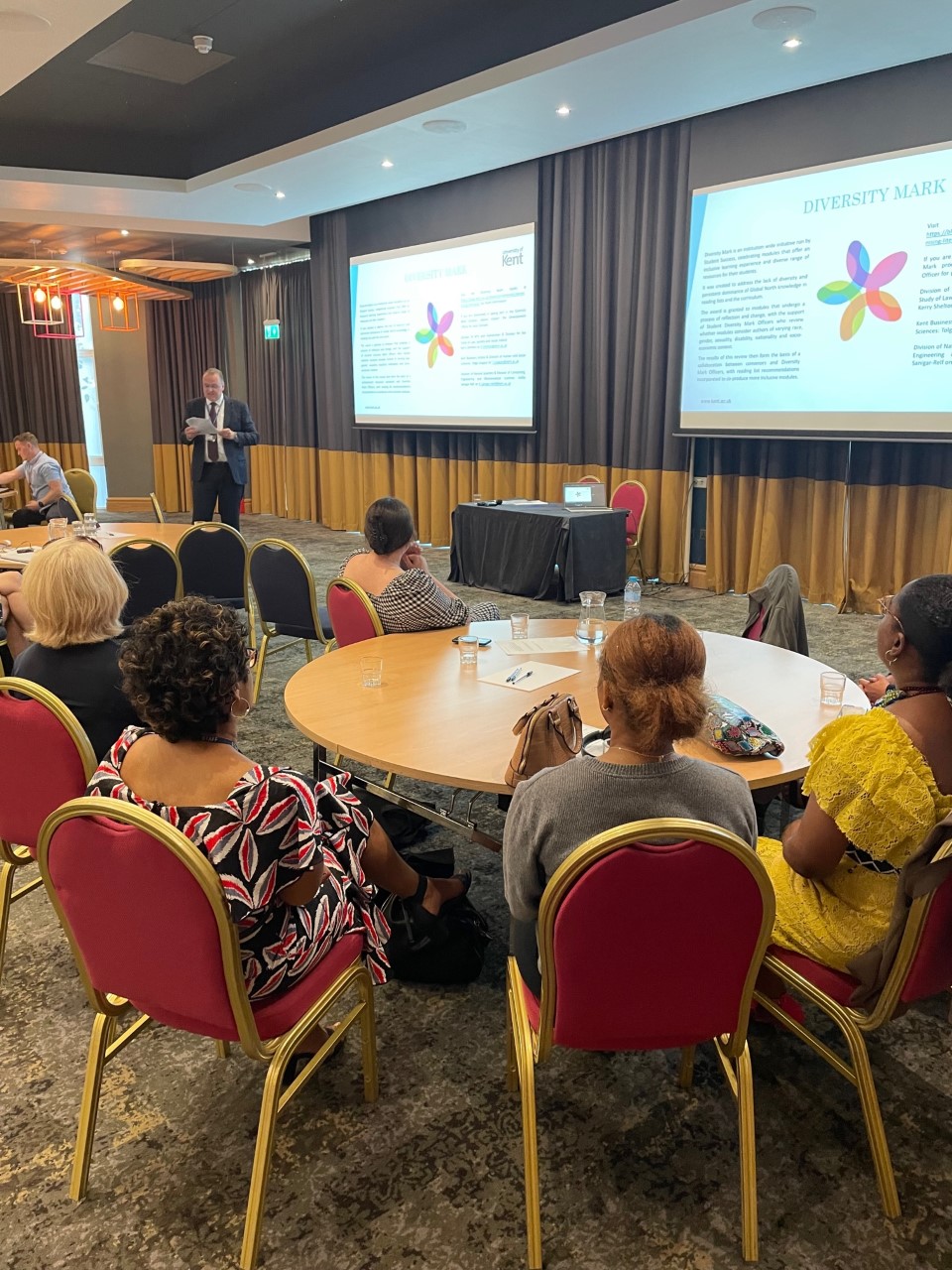
If you would like to find out more about Diversity Mark, visit the Student Success website for further information.
Diversity Mark presentations will be taking place across Schools after Welcome Week, however any convenors interested in participating are warmly encouraged to register their interest with the relevant Student Success team member for their Division:
Division of Arts and Humanities & Division for the Study of Law, Society and Social Justice: Kerry Shelton on K.Shelton@kent.ac.uk
Kent Business School & Division of Human and Social Sciences: Tolga Duygun on T.Duygun@kent.ac.uk
Division of Natural Sciences & Division of Computing, Engineering and Mathematical Sciences: Hollie Sanigar-Relf on H.Sanigar-Relf@kent.ac.uk




